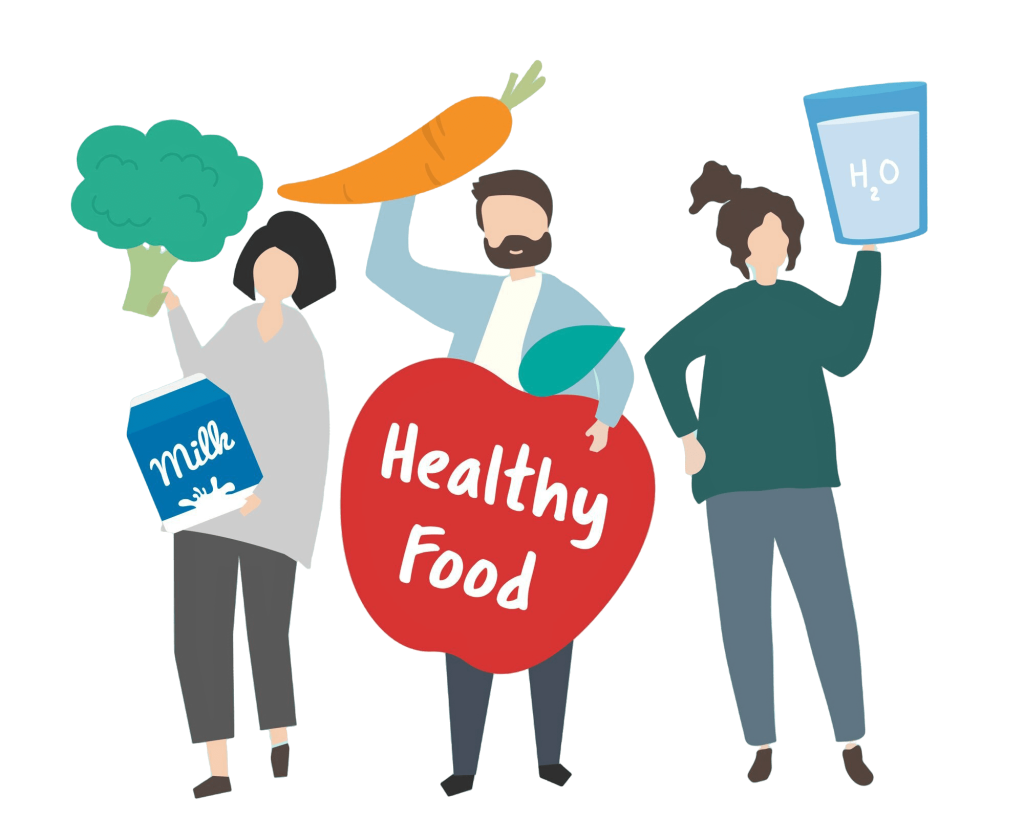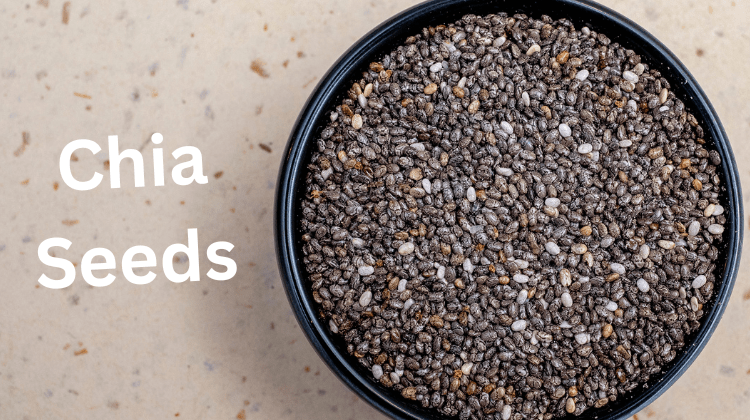Beyond being a simple snack, pumpkin seeds actively support heart health, skin vitality, and immune strength, making them a small food with big wellness benefits.
Nutritional Profile of Pumpkin Seeds
Pumpkin seeds may be small, but they are among the most nutrient-dense foods you can add to your diet. They provide a rich mix of minerals, vitamins, protein, and healthy fats that contribute to long-term health and disease prevention.
Key Minerals in Pumpkin Seeds
- Magnesium – Pumpkin seeds are one of the best natural sources of magnesium. This mineral plays a crucial role in regulating blood pressure, maintaining steady heart rhythms, supporting strong bones, and aiding in energy production.
- Zinc – Known for its role in immune support and skin health, zinc also contributes to wound healing, hormone balance, and reproductive health.
- Iron – Essential for oxygen transport, iron helps prevent fatigue and anemia while improving overall energy levels.
- Copper and Manganese – Support metabolism, bone strength, and antioxidant defense systems.
Protein and Healthy Fats
Pumpkin seeds are a plant-based protein source, providing about 7 grams of protein per ounce (28 grams), making them a valuable addition for vegetarians and vegans. They also contain a balance of omega-3 and omega-6 fatty acids, which are essential for heart health, brain function, and reducing inflammation.
Antioxidants and Vitamins
- Vitamin E – Acts as a powerful antioxidant that protects cells from damage and supports healthy, glowing skin.
- B-complex vitamins (B2, B3, B5, B6, and folate) – Aid in energy production, brain function, and the proper functioning of the nervous system.
- Carotenoids and polyphenols – Plant compounds that fight oxidative stress and may reduce the risk of chronic diseases like diabetes and heart disease.
Caloric Value and Portion Considerations
Pumpkin seeds are calorie-dense but nutrient-rich. A standard 1-ounce (28g) serving provides approximately:
- 150–160 calories
- 7g protein
- 13g healthy fats
- 1–2g fiber
- 15% of daily magnesium needs
- 14% of daily zinc needs
- 23% of daily iron needs
Because of their high nutrient content, even small amounts of pumpkin seeds can make a big difference in your daily nutrition. However, moderation is key—eating around a small handful (1–2 ounces) per day provides maximum benefits without adding excess calories.
Pumpkin Seeds and Heart Health
Heart health is one of the most well-documented benefits of eating pumpkin seeds. Their unique combination of minerals, healthy fats, and antioxidants makes them a natural support for cardiovascular wellness.
Magnesium for Blood Pressure Regulation
Pumpkin seeds are a top dietary source of magnesium, a mineral essential for maintaining normal blood pressure and reducing the risk of hypertension. According to the National Institutes of Health (NIH), adequate magnesium intake helps regulate vascular tone and improves heart rhythm, lowering the chances of cardiovascular complications.
Healthy Fats for Cholesterol Balance
Rich in polyunsaturated fats, especially omega-3 and omega-6, pumpkin seeds help balance blood lipid levels. These healthy fats contribute to lowering LDL (“bad”) cholesterol and raising HDL (“good”) cholesterol, helping prevent arterial plaque buildup and promote arterial flexibility. Clinical data show that pumpkin seed oil supplementation led to significant reductions in LDL and increases in HDL cholesterol (ResearchGate).
Antioxidants Combat Oxidative Stress
Cardiovascular stress often stems from oxidative damage to blood vessels. Pumpkin seeds supply antioxidants like vitamin E, carotenoids, polyphenols, and phytosterols, which help neutralize free radicals and reduce inflammation. These compounds support vascular health and may slow the progression of atherosclerosis.
Research-Backed Heart Disease Prevention
Animal model studies provide compelling evidence for pumpkin seeds’ cardioprotective effects. For instance, rats on high-cholesterol diets supplemented with pumpkin seeds experienced dramatic drops in total cholesterol (48%) and LDL (“bad”) cholesterol (79%), while HDL (“good”) cholesterol significantly increased PMC.
Another study reported that regular pumpkin seed oil intake improved lipid profiles and lowered both systolic and diastolic blood pressure in rats, even in estrogen-deficient models PubMed.
Pumpkin Seeds and Skin Health
Pumpkin seeds are more than just a healthy snack—they’re also a natural beauty booster. Packed with vitamins, minerals, and healthy fats, they nourish the skin from the inside out and help protect it from damage and premature aging.
Vitamin E and Antioxidants Protecting Against Premature Aging
Pumpkin seeds are rich in vitamin E, a powerful antioxidant that shields skin cells from free radical damage. Free radicals, often caused by pollution and UV exposure, accelerate skin aging and lead to wrinkles, fine lines, and dark spots.
By neutralizing these harmful molecules, vitamin E helps maintain skin elasticity and youthful appearance. Additionally, other antioxidants such as carotenoids and polyphenols in pumpkin seeds provide further defense against oxidative stress, keeping the skin radiant and healthy.
Zinc’s Role in Collagen Production and Acne Prevention
Pumpkin seeds are an excellent source of zinc, a mineral that supports the production of collagen—the protein responsible for firm, smooth skin.
Zinc also regulates oil production in the skin and promotes wound healing, making it particularly beneficial for those dealing with acne, scars, or skin inflammation. Regular intake of zinc-rich foods like pumpkin seeds has been linked to clearer, more resilient skin.
Healthy Fats for Skin Hydration and Elasticity
The omega-3 and omega-6 fatty acids in pumpkin seeds contribute to deep skin hydration and barrier function. These healthy fats lock in moisture, improve skin softness, and enhance elasticity. Unlike saturated fats that can clog pores, the polyunsaturated fats in pumpkin seeds help keep skin supple without triggering breakouts.
How Pumpkin Seed Oil Supports Skin Barrier Function
Pumpkin seed oil, extracted from the seeds, is widely used in natural skincare. It contains a blend of fatty acids, vitamin E, and phytosterols that strengthen the skin’s protective barrier.
This barrier locks in hydration, protects against environmental toxins, and reduces inflammation. Topical application of pumpkin seed oil may help soothe eczema, dryness, and irritation, while dietary intake provides long-term skin nourishment from within.
Pumpkin Seeds and Immune Health
A strong immune system depends on a steady intake of vitamins and minerals, and pumpkin seeds are one of the best natural sources to support immune defense. Their combination of zinc, iron, and antioxidants helps the body fight infections, reduce inflammation, and recover faster from illness.
Zinc and Iron in Boosting Immune Cell Function
Pumpkin seeds are particularly high in zinc, a mineral crucial for the development and activation of immune cells. Zinc deficiency has been linked to weakened immunity, increased risk of infections, and slower wound healing. Eating pumpkin seeds regularly can help maintain optimal zinc levels, which strengthens the body’s natural defense mechanisms.
In addition, pumpkin seeds provide iron, which supports oxygen transport in the blood and enhances the activity of immune cells. Adequate iron levels help prevent fatigue and ensure that the immune system functions effectively against pathogens.
Antioxidants Reducing Inflammation and Supporting Recovery
Chronic inflammation weakens the immune system, making the body more vulnerable to illness. Pumpkin seeds contain powerful antioxidants such as vitamin E, polyphenols, and carotenoids that reduce oxidative stress and calm inflammation. By lowering cellular damage and supporting tissue repair, these compounds allow the immune system to work efficiently and speed up recovery after illness.
Role of Pumpkin Seeds in Seasonal Immunity
Seasonal changes, especially during cold and flu seasons, put extra stress on the immune system. Pumpkin seeds can serve as a natural shield thanks to their nutrient profile.
Their zinc helps reduce the duration and severity of common colds, while their antioxidant compounds enhance resistance to seasonal viruses.
Including a handful of pumpkin seeds in the daily diet provides steady immune support, making them a simple yet effective food for long-term wellness.
Additional Health Benefits of Pumpkin Seeds
Beyond heart, skin, and immune support, pumpkin seeds provide several other health benefits that make them a valuable part of a balanced diet. Their unique nutrient profile supports men’s health, improves sleep quality, and helps regulate blood sugar levels naturally.
Supporting Prostate Health in Men
Pumpkin seeds have long been recognized for their role in supporting prostate health. They are rich in zinc, a mineral essential for proper prostate function and male reproductive wellness.
Studies suggest that pumpkin seed extract and oil may help reduce symptoms of benign prostatic hyperplasia (BPH), a condition that causes urinary difficulties in older men. The phytosterols in pumpkin seeds are also thought to contribute to prostate protection by balancing hormones and reducing inflammation.
Promoting Better Sleep Due to Tryptophan
Pumpkin seeds are a natural source of tryptophan, an amino acid that the body uses to produce serotonin and melatonin—two hormones that regulate mood and sleep cycles.
Consuming pumpkin seeds before bedtime, especially alongside a small amount of carbohydrate, may promote deeper and more restful sleep.
Additionally, the magnesium in pumpkin seeds further supports relaxation by calming the nervous system and improving sleep quality.
Managing Blood Sugar Levels Naturally
For individuals managing blood sugar fluctuations or type 2 diabetes, pumpkin seeds can be a helpful dietary addition. Their high magnesium content improves insulin sensitivity and supports glucose metabolism.
In addition, their combination of protein, fiber, and healthy fats helps slow down carbohydrate absorption, preventing sharp spikes in blood sugar.
Regular consumption of pumpkin seeds may contribute to better long-term blood sugar control and reduced risk of complications linked to diabetes.
How to Incorporate Pumpkin Seeds into Your Diet
Pumpkin seeds are versatile and can easily fit into a variety of meals and snacks. Whether eaten raw, roasted, or as part of different recipes, they provide a simple way to boost nutrition every day.
Raw vs. Roasted: Which Is Better?
- Raw pumpkin seeds retain the highest nutrient levels, especially heat-sensitive compounds like antioxidants and healthy fats. They are ideal if you want maximum nutritional value.
- Roasted pumpkin seeds offer a crunchier texture and richer flavor. Light roasting at low temperatures can preserve most nutrients, but avoid heavily salted or flavored varieties, which may add excess sodium or sugars.
For health purposes, lightly roasted or raw pumpkin seeds are the best choice.
Adding Seeds to Salads, Smoothies, and Yogurt Bowls
Pumpkin seeds are easy to sprinkle on meals for added crunch and nutrition.
- Toss them on salads for extra protein, fiber, and healthy fats.
- Blend them into smoothies for a plant-based protein boost.
- Add them to yogurt or oatmeal bowls for texture and nutrient density.
- Mix them into granola or trail mixes for an energy-rich snack.
Pumpkin Seed Butter and Oil as Alternatives
If you prefer spreads or oils, pumpkin seeds are also available in other forms:
- Pumpkin seed butter – a nutritious alternative to peanut or almond butter, packed with protein and healthy fats.
- Pumpkin seed oil – often used as a salad dressing or finishing oil. It provides concentrated antioxidants and essential fatty acids, though it should not be used for high-heat cooking since heat reduces its beneficial compounds.
Daily Recommended Intake for Maximum Benefits
A small handful (about 1 ounce or 28 grams per day) is considered an ideal serving size. This portion provides around 150 calories, 7 grams of protein, 13 grams of healthy fats, and essential minerals like zinc, iron, and magnesium. Regular consumption within this range helps you enjoy the health benefits without overloading on calories.
Possible Side Effects and Precautions
While pumpkin seeds are highly nutritious, consuming them in excess or without care can lead to certain side effects. Understanding their limitations ensures you can enjoy their benefits safely.
Overeating Concerns: Calorie Density
Pumpkin seeds are calorie-dense because of their high fat content (though mostly healthy fats). A single ounce (28 grams) provides about 150–160 calories. Eating too many can lead to unwanted weight gain if you’re not balancing calorie intake with physical activity. Moderation—about a small handful per day—is the best way to enjoy them without excess calories.
Allergies and Digestive Sensitivity
Although rare, some people may have allergies to pumpkin seeds, leading to symptoms such as itching, rashes, or difficulty breathing. If you experience these, discontinue use and consult a healthcare professional.
In some individuals, eating large amounts of pumpkin seeds may also cause digestive discomfort, such as bloating, gas, or mild stomach upset, due to their high fiber and fat content.
Best Practices for Safe Pumpkin Seeds Consumption
- Stick to moderate portions: Aim for about 1 ounce (28 grams) daily.
- Choose unsalted and unflavored seeds to avoid excess sodium or added sugars.
- Store seeds properly in an airtight container in a cool, dry place to prevent rancidity of healthy fats.
- Introduce gradually into your diet if you’re new to eating them, allowing your digestive system to adjust.
- Check with a healthcare professional if you have conditions like nut/seed allergies, digestive disorders, or are on a restricted diet.
In Summary
Pumpkin seeds may be small, but they pack an impressive nutritional punch. From supporting heart health with magnesium and healthy fats, to nourishing the skin with antioxidants and zinc, and even strengthening the immune system, these seeds truly stand out as a natural superfood.
Incorporating them into your diet doesn’t have to be complicated—add a handful to your smoothies, salads, or yogurt bowls, or try pumpkin seed butter and oil for variety. With their versatility, they can easily become a delicious part of your daily meals.
That said, like any nutrient-dense food, moderation is key. Enjoying pumpkin seeds in controlled portions ensures you get their benefits without unnecessary calories or digestive discomfort.
FAQs About Pumpkin Seeds
Are pumpkin seeds good for heart patients?
Yes, pumpkin seeds can be beneficial for heart patients. They are rich in magnesium, potassium, and healthy fats, which help regulate blood pressure and maintain healthy cholesterol levels. Their antioxidants also reduce oxidative stress, lowering the risk of cardiovascular complications.
Do pumpkin seeds improve skin glow?
Absolutely. Pumpkin seeds contain vitamin E, zinc, and omega fatty acids, which protect against free radical damage, support collagen production, and keep the skin hydrated. Regular consumption can help the skin look healthier and more radiant.
How many pumpkin seeds should you eat daily for immunity?
A small handful (about 1 ounce or 28–30 grams) of pumpkin seeds daily is enough to boost immunity. This portion provides zinc, iron, and antioxidants, which strengthen immune cell function and help the body fight seasonal infections like colds and flu.
Are raw or roasted pumpkin seeds healthier?
Both are healthy, but raw pumpkin seeds retain more antioxidants and nutrients since they are not exposed to high heat. However, lightly roasted seeds (without added salt or oil) are still nutrient-dense and may be easier to digest for some people.
Can pumpkin seeds cause side effects?
Pumpkin seeds are generally safe, but overeating may lead to weight gain due to their calorie density. Some people may also experience bloating, stomach upset, or allergies. It’s best to consume them in moderation.



